Soybean Oil Benefits: 6 Science-Backed Health Perks
From promoting hair growth to improving memory, this versatile oil can do wonders.
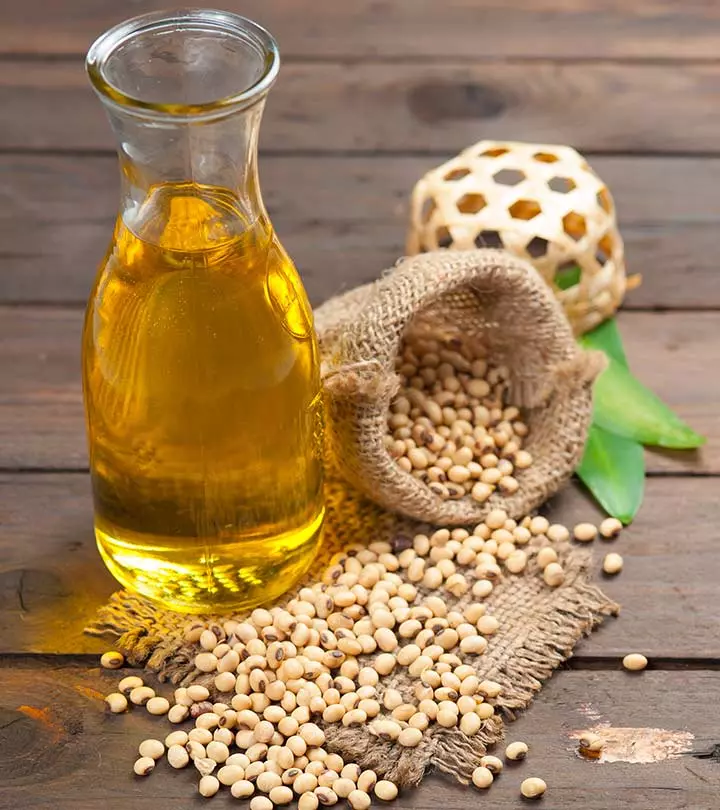
Image: Shutterstock
Soybeans are a go-to protein source for vegetarians and vegans. One of its most used derivatives is soybean oil. This oil extracted from soybeans is rich in protein and healthy fats.
Soybean oil benefits are gaining the attention of many health enthusiasts. It is used by many health freaks because of its rich nutritional profile.
But can it be a healthy substitute for other oils? Can it be consumed regularly? What makes this vegetable oil healthy? Get the answers to your queries from this article. Continue reading to know more.
 Know Your Ingredient: Soybean Oil
Know Your Ingredient: Soybean OilWhat Is It?
A vegetable oil produced from the seeds of the soybean plant (Glycine max).
What Are Its Benefits?
It may help lower cholesterol levels, improve skin and hair health, lose weight, and boost brain function.
Who Can Use It?
It is safe for consumption and topical application by all.
How Often?
You can consume and apply products containing soybean oil every day without any issues.
Caution
Some people may be allergic to soybean oil, and it may cause inflammation, obesity, diabetes, and thyroid imbalance in certain individuals.
In This Article
What Is Soybean Oil?
Soybean oil is an edible vegetable oil extracted from soybeans (Glycine max) by heat treating cracked beans with different solvents.
The crude oil is blended and refined to make it edible.
Soybean oil is used in various industries that make products such as:
- Eco-friendly pesticides
- Fungicides
- Resins
- Paints
- Plastics
- Lubricants and bio-diesel
- Soaps
- Cosmetics
- Food and beverages
 Fun Fact
Fun FactMainly, it is the food industry in which soybean oil has become popular. It is used:
- As a cooking oil
- In salad dressings
- To make margarineIn baked goods to impart tenderness
- As an emulsifying agent
- In preparing smooth icings and fillings
- To make crispier crusts, wafers, crackers, breads, etc.
- In sauces like mayonnaise and barbeque sauces
- In deep frying processes with high fats
But what I’m interested in sharing with you is how healthy using soybean oil for regular cooking is, and how it affects your body. So, let’s get started!
Key Takeaways
- Soybean oil is packed with proteins, essential fats, and phytochemicals.
- Soybean oil or soy products may reduce hair fall and nourish your skin as it may increase amino acids in your hair fibers and is rich in antioxidants, and vitamins that protect your skin.
- Adding soybean oil to your diet may reduce bad cholesterol and help protect your heart.
- It may also improve bone health and brain health and may boost memory and cognition.
- Soybean oil can however have negative side effects like hindering thyroid function, causing obesity and diabetes, and being allergic to infants.
How Is Using Soybean Oil Beneficial For You?
Since it is an excellent source of proteins, essential fats, and phytochemicals, soybean oil has an array of incredible health benefits.
1. Aids Hair Growth

Hair fall and balding are rising menaces, and they occur in women and men of all age groups. Multiple factors like stress, anxiety, genes, malnutrition, hormonal imbalance, and pollution can lead to accelerated hair fall, reduced hair strand strength, and stunted hair growth.
But the good news is you can use soybean oil for hair. Using soybean oil or soy products can increase the amino acids and keratin-like molecules in hair fibers, strengthening them from the roots.
This is why many shampoos that promise to add shine to your hair have soy oil or soy derivatives (1).
2. Protects And Nourishes Your Skin

You may also use soybean oil for the skin. The oil is rich in linoleic acid, isoflavones, antioxidants, and vitamins that protect and nourish your skin.
Applying soybean oil or gels and lotions containing soybean oil derivatives can protect your skin from UVB rays and free radical-induced inflammation and reduce the transepidermal water lossi It refers to the process where the water passes through the different skin layers and eventually evaporates from its surface. (TEWL) on the skin, promoting skin barrier recovery (2), (3).
Black soybean oil is rich in antioxidants like anthocyanins and isoflavones that prevent skin aging in post-menopausal women. The isoflavones are phytoestrogens and exhibit human estrogen-like activity.
Using such plant oils prevents the loss of collagen and elastin in your skin and keeps your skin soft, moist, and free of wrinkles, pigmentation, and fine lines (4).
3. Lowers Bad Cholesterol Levels And Protects Your Heart

Using refined oils for cooking can increase the levels of ‘bad’ unsaturated fats in your body, leading to the accumulation of ‘bad’ cholesterol or LDL (Low-density lipoprotein) in the blood.
The LDL deposits clog your blood vessels, interfere with blood circulation, and indirectly increase the pressure on your heart, leading to hypertension.
Healthy alternatives like soybean oil are abundant in the ‘good’ unsaturated omega-3 and omega-3 fatty acids. It slows down LDL accumulation and reduces hypertensioni Also called high blood pressure, which occurs due to Increased pressure of the flowing blood on the arterial wall. . In a study, it was found to lower the risk of atherosclerosisi The buildup of fats on the outer walls of the arteries leading to a ruptured artery, stroke, or heart attack. and ischemic attacks by a whopping 25% (5).
Time to choose wisely, isn’t it?
4. Helps You Gain Weight The Right Way

While 80% of the world’s population wants to lose weight, there are many undernourished people out there, who have been advised to gain weight.
Since soybean oil has higher levels of mono and polyunsaturated fatty acids than saturated fats, along with vegetable starch and phytochemicals, substituting butter or refined cooking oil with it is a healthier option.
Note: Check out how soybean oil clearly wins over butter in the later sections!
You can dress your salads with soybean oil and use it in baking and regular cooking. Remember to balance it with a lot of fiber in your diet to put on pounds gradually and in a healthy way – without hurting your heart, liver, or metabolism.
 Trivia
Trivia5. Is Vital For Bone Health

Women are gifted with a mysterious weapon called estrogen that protects them from the biggest of disorders.
One of the crucial roles estrogen plays is in regulating bone metabolism, and its deficiency was found to cause bone loss and increased incidence of osteopeniai A condition that causes loss of bone mineral density, leading to weak bones, mostly affecting women over 50. .
Soybean oil is rich in phytosterols called isoflavones (plant-derived polyphenols and estrogen look-alikes) that scavenge free radicals and bind to estrogen receptors on your bones to trigger positive bone reforming and offer protection from bone diseases like osteoporosisi A condition that causes weak and brittle bones that fracture easily, mostly affecting the hips, wrists, or spine. and osteopenia (6).
6. Increases Memory Power And Fights Alzheimer’s Disease
Elevated levels of saturated fats cause the formation of amyloid plaques (like LDL deposits) on the brain cells, leading to their inflammation and memory loss.
Soybean oil has high levels of vitamin K, vitamin E, and the ‘good’ unsaturated fatty acids, like linolenic and linoleic acids, which go on to make up omega-3 acids like DHA and EPA and omega-6 fatty acids.
These fatty acids have potent neuroprotective properties and need to be externally supplied through your diet. Adding soybeans to your food, using soybean oil for cooking, or taking soybean oil supplements can boost memory and learning, thus improving brain function. It can also treat severe cognitive, neurodegenerative, and cerebrovascular disorders like Alzheimer’s (7).
In addition to its health benefits, soybean oil supports sustainable farming methods. With crop rotation and less pesticide use, soybean production promotes soil health and biodiversity and is often grown using environmentally friendly practices.
Despite coming from a plant source, soybean oil has become quite a hit – thanks to its benefits.
So, what components of these beans are responsible for bringing such positive effects in your body?
Isn’t that what you just thought about? Here’s what I have for you!
What Is The Biochemical And Nutritional Value Of Soybean Oil?
The biochemical composition, along with its nutrition profile, gives soybean oil its characteristic health benefits and uses. Take a look.
| Nutrition Facts Serving Size 13g | ||
|---|---|---|
| Amount Per Serving | ||
| Calories 119 | Calories from Fat 119 | |
| % Daily Value* | ||
| Total Fat 14g | 21% | |
| Saturated Fat 2g | 10% | |
| Trans Fat 0 g | ||
| Cholesterol 0mg | 0% | |
| Sodium 0mg | 0% | |
| Total Carbohydrate 0g | 0% | |
| Dietary Fiber 0g | 0% | |
| Sugars 0g | ||
| Protien 0g | ||
| Vitamin A | 0% | |
| Vitamin C | 0% | |
| Calcium | 0% | |
| Iron | 0% | |
| Calorie Information | ||
| Amounts Per Selected Serving | %DV | |
| Calories | 119(498 kJ) | 6% |
| From Carbohydrate | 0.0(0.0 kJ) | |
| From Fat | 119(498 kJ) | |
| From Protein | 0.0(0.0 kJ) | |
| From Alcohol | 0.0(0.0 kJ) | |
| Carbohydrates | ||
| Amounts Per Selected Serving | %DV | |
| Total Carbohydrate | 0.0 g | 0% |
| Dietary Fiber | 0.0 g | 0% |
| Starch | 0.0 g | |
| Sugars | 0.0 g | |
| Fats & Fatty Acids | ||
| Amounts Per Selected Serving | %DV | |
| Total Fat | 13.5 g | 21% |
| Saturated Fat | 2.1 g | 10% |
| Monounsaturated Fat | 3.1 g | |
| Polyunsaturated Fat | 7.7 g | |
| Total trans fatty acids | 0.1 g | |
| Total trans-monoenoic fatty acids | 0.0 g | |
| Total trans-polyenoic fatty acids | 0.1 g | |
| Total Omega-3 fatty acids | 949 mg | |
| Total Omega-6 fatty acids | 6790 mg | |
| Protein & Amino Acids | ||
| Amounts Per Selected Serving | %DV | |
| Protein | 0.0 g | 0% |
| Vitamins | ||
| Amounts Per Selected Serving | %DV | |
| Vitamin A | 0.0IU | 0% |
| Vitamin C | 0.0 mg | 0% |
| Vitamin D | ~ | ~ |
| Vitamin E (Alpha Tocopherol) | 1.1 mg | 6% |
| Vitamin K | 24.8 mcg | 31% |
| Thiamin | 0.0 mg | 0% |
| Riboflavin | 0.0 mg | 0% |
| Niacin | 0.0 mg | 0% |
| Vitamin B6 | 0.0 mg | 0% |
| Folate | 0.0 mcg | 0% |
| Vitamin B12 | 0.0 mcg | 0% |
| Pantothenic Acid | 0.0 mg | 0% |
| Choline | 0.0 mg | |
| Betaine | 0.0 mg | |
| Minerals | ||
| Amounts Per Selected Serving | %DV | |
| Calcium | 0 mg | 0% |
| Iron | 0 mg | 0% |
| Magnesium | 0 mg | 0% |
| Phosphorus | 0 mg | 0% |
| Potassium | 0 mg | 0% |
| Sodium | 0.0 mg | 0% |
| Zinc | 0.0 mg | 0% |
| Copper | 0 mg | 0% |
| Manganese | ~ | ~ |
| Selenium | 0 mcg | 0% |
| Fluoride | ~ | |
Soybean oil is rich in calories derived from unsaturated fatty acids and plant starch. It is rich in vitamins E and K and is essential in the synthesis and functioning of steroidal hormones like estrogen.
Hence, it is a healthier alternative to other refined vegetable oils or animal fats. Don’t believe me?
Let me give you some comparative data between soybean oil and butter.
| Composition of the 2 experimental diets | ||
|---|---|---|
| Diet | ||
| Soybean oil | Butter | |
| Composition (g)1 | ||
| Fat (soybean oil or butter) | 14.13 | 17.09 |
| Carbohydrate (starch) | 56.52 | 54.37 |
| Protein (casein) | 21.2 | 20.39 |
| Cellulose | 2.0 | 2.0 |
| Minerals2 | 5.0 | 5.0 |
| Vitamins3 | 1.0 | 1.0 |
| Methionine | 0.15 | 0.15 |
| Energy (kJ/g) | 17.72 | 17.05 |
| Composition of soybean oil and butter1 | ||
| Diet | ||
| Soybean oil | Butter | |
| Energy (kJ) | 3696 | 3091 |
| Water (g) | 0 | 15.5 |
| Proteins (g) | 0 | 0.7 |
| Lipids (g) | 99.9 | 83 |
| Saturated (g) | 14.1 | 52.6 |
| Monounsaturated (g) | 20.5 | 23.5 |
| Polyunsaturated (g) | 60.5 | 2 |
| Cholesterol (mg) | 0 | 250 |
It is evident from the numbers that soybean oil is a better choice. I say this because there’s more than just fats to this oil. Read on!
Biochemically, soybean oil has many unique phytochemicals, including isoflavones, saponins, phytosterols, and phenolic acids.
The most important and abundant of them are the isoflavones daidzein, genistein, and glycetein. These play a vital role in preventing cardiovascular diseases and cancers.
Saponins are hypocholesterolemici The presence of low quantity cholesterol in the blood due to stress, anemia, infections, etc. and antioxidant sterols, which specifically prevent colon cancers. Soybean oil has various phytosterols – like sitosterol, campesterol, and stigmasterol – that have anticancer and antioxidant properties. The phenolic acids present in soybeans, including chlorogenic acid, caffeic acid, ferulic acid, and ellagic acid, also have antioxidant and anti-inflammatory properties (7).
Moreover, soybean oil has a high smoke point and is hence considered a good option for high-heat cooking. The smoke point of soybean oil is around 450°F (232°C). This means it can withstand high temperatures and is suitable for various cooking methods such as deep-frying, sautéing, pan-searing, grilling, and baking without breaking down its fats and producing harmful compounds. Its ability to withstand high heat may help keep its nutritional compounds intact, making it a relatively healthier option compared to other oils. It also reduces splattering, making your cooking process more manageable. In addition, it is ideal for Asian cuisines where high temperatures are frequently used to quickly prepare several dishes.
It sounds like an ideal replacement for your regular cooking oil, doesn’t it?
But, when you look at the nutrition table, one thing that struck me (and must have caught your eye too!) is the level of polyunsaturated fatty acids.
 Quick Tip
Quick TipThere are various soybeans benefits for your health, including the oil extracted from them, thanks to their promising phytochemical profile. However, they also contain high levels of fatty acids that reportedly have deleterious effects on your health. Scroll down to know what they are.
Side Effects And Drawbacks Of Using Soybean Oil
- Hinder Thyroid Functioning
Soybean oil and soy products have shown antithyroid effects in iodine-deficient individuals.
When hypothyroid patients consume soy products, the isoflavones inhibit the absorption of synthetic thyroid supplements, showing a false negative response to the treatment. Sometimes, the dose is increased to bridge the gap, which never existed (8),(9).
You can either cut down on the soybean oil intake or follow a balanced diet under medical supervision to avoid clinical implications.
- Causes Obesity And Diabetes
The culprits, in this case, are the polyunsaturated fatty acids. Once they are broken down, these fatty acid derivatives get accumulated in various organs of the body, including the liver and kidneys, increasing their weights and leading to inflammation and eventually diabetes.
Also, because of the saturated fatty acid content, this oil induces the build-up of the fat storing adipose tissues, causing obesity (10).
- Can Be Allergic To Infants
Breastfeeding infants are usually allergic to soybean derivatives because of their complex phytochemical composition.
Such children can develop severe rashes, nausea, fever, and problems with digestion, when fed processed milk products in which soy derivatives are added in powdered form.
Darlene, a vlogger, shared her harrowing experience with gluten and soy allergy and the symptoms she would experience in her vlog. She said, “I would get itchy. I would feel it burning everywhere (i).”
Uncover the amazing health benefits of soybean oil! Watch this video to learn how this light and tasty oil can help improve your overall health and wellbeing.
Infographic: Top Benefits Of Using Soybean Oil
Soybean oil is a versatile cooking ingredient that has uses beyond offering flavor, thanks to the presence of beneficial minerals and heart-healthy fats. This natural oil has a wide range of benefits, from enhancing brain function to supporting cardiovascular health. Check out the infographic below to learn more about the top reasons for including soybean oil in your daily diet.

Illustration: StyleCraze Design Team
While soybean makes for a rich protein source for vegetarians and vegans alike, soybean oil benefits are not just limited to that. Soybean oil with its rich amino acid content is not only good for your skin and hair health but also helps lower cholesterol, making it a healthier cooking oil option. It is also rich in bone-regenerating isoflavones that help prevent degenerative conditions like osteoporosis and osteoarthritisi The most common type of arthritis wherein the cartilage cushioning the bones at the bone joints wears down over time. . Its high levels of vitamin K content also makes it beneficial for brain health, helping to improve memory and cognition. You can use soybean oil salad dressings, or baked wafers, chips, and bread, to get the most of its health benefits.
Frequently Asked Questions
How can I incorporate soybean oil into my diet?
Add soybean oil to your diet by using it in baking recipes, salad dressings, or cooking. Its neutral flavor and high smoke point make it perfect for a wide range of recipes. It adds healthy fats without dominating other flavors and works well for roasting, marinating, and stir-frying.
Is soybean oil better than olive oil?
Yes, soybean oil is better than olive oil. The polyunsaturated fats in soybean oil make it an ideal choice for cardiovascular health.
Is soybean oil good for weight loss?
Yes, if consumed in moderation, soybean oil helps with weight loss because of its low linoleic acid content (which otherwise may induce obesity).
Which oil is better soybean or sunflower?
Both sunflower and soybean oil has their own nutritional profiles and benefits. However, soybean oil has more polyunsaturated fats that help lower cholesterol. It also has a higher smoking point, making it ideal for cooking methods like frying.
How much soybean oil per day is safe?
There is no particular recommended amount, as it depends on factors like age, metabolism, and health of the individual. However, it is essential to consume it in moderation to avoid health issues,
Who should avoid soybean oil?
People with soy allergy, thyroid issues, diabetes, obesity, or those following a specific diet should avoid consuming soybean oil.
Does soybean oil raise blood sugar?
Soybean oil does not have carbohydrates as it is purely fats. Thus, it is unlikely that it can impact blood sugar levels. However, consuming more of carbohydrates cooked in soybean oil can affect blood sugar levels.
Does soybean increase uric acid?
Anecdotal evidence suggests the soybean might help in lower uric acid in certain individuals. However, more research is needed to substantiate the claim.
Is soybean oil bad for fatty liver?
Soybean oil has healthy fats and can be healthy for the liver. However, just like any other oil, it can lead to gaining weight, which can affect and worsen fatty liver.
Can soybean oil be used topically on the skin or hair, and if so, what are some potential benefits and drawbacks of doing so?-ac
How can I choose a high-quality soybean oil product, and what should I look for when shopping for this ingredient?
While choosing soybean oil, make sure the product is not near its expiry date and is from a reputed brand. Look for cold-pressed or 100% pure oil, contained in a darker shade of glass or metal bottles to prevent oxidization.
How can I incorporate soybean oil into my daily diet and routine in a way that is both enjoyable and sustainable over the long term?
To incorporate soybean oil in your daily, you can use it to replace your regular oil. However, exercise moderation while consuming any oil as it contains high levels of polyunsaturated fats and leads to unwanted weight gain, heart issues, and other health issues.
Illustration: Amazing Benefits and Uses Of Soybean Oil

Image: Stable Diffusion/StyleCraze Design Team
Personal Experience: Source
StyleCraze's articles are interwoven with authentic personal narratives that provide depth and resonance to our content. Below are the sources of the personal accounts referenced in this article.
i. What Happens When I Eat Gluten or Soy | Transparent Allergy Talkhttps://www.youtube.com/watch?v=jeTlsyVnpMg
References
Articles on StyleCraze are backed by verified information from peer-reviewed and academic research papers, reputed organizations, research institutions, and medical associations to ensure accuracy and relevance. Read our editorial policy to learn more.
- “Hair Cosmetics: An Overview” International Journal of Trichology, US National Library of Medicine
- “Black soybean anthocyanins attenuate inflammatory responses…” Nutrition Research and Practice, US National Library of Medicine
- “Anti-Inflammatory and Skin Barrier Repair Effects…” International Journal of Molecular Sciences, US National Library of Medicine.
- “Dermatological application of soy isoflavones…”
- “Getting to the heart of…” Harvard Health Publishing, Harvard Medical School
- “Osteoprotective effect of soybean and sesame oils…” Cytotechnology, US National Library of Medicine
- “Phytochemicals in soybeans” Department of Nutrition and Food Science, South Dakota State University
- “Effect of soy protein and soybean…” Thyroid: official journal of American Thyroid Association, US National Library of Medicine
- “Goitrogenic and estrogenic activity…” Environmental Health Perspectives, US National Library of Medicine
- “Soybean Oil Is More Obesogenic…” PLoS One, US National
Read full bio of Merlin Annie Raj
Read full bio of Swathi Handoo
Read full bio of Ravi Teja Tadimalla
Read full bio of Aparna Mallampalli








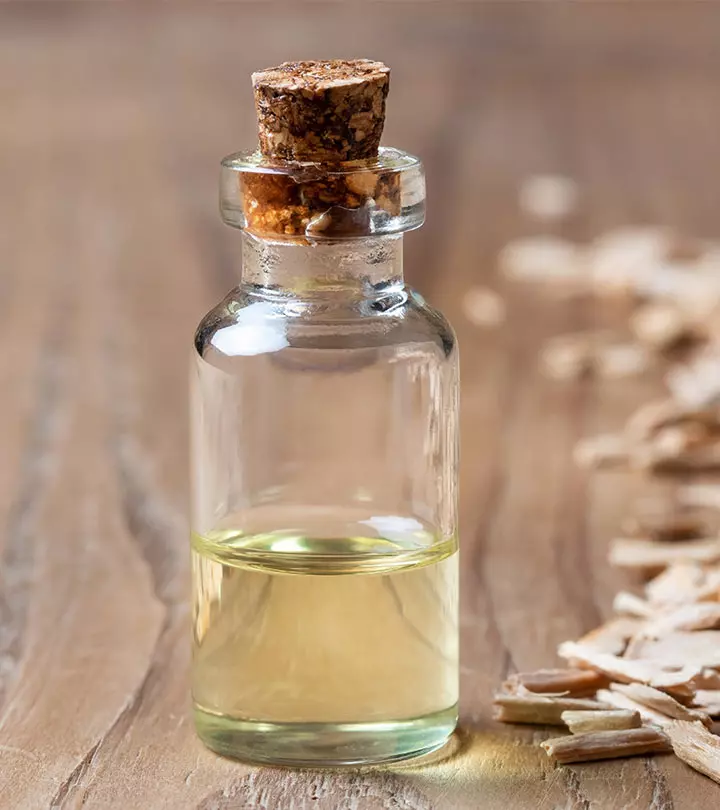




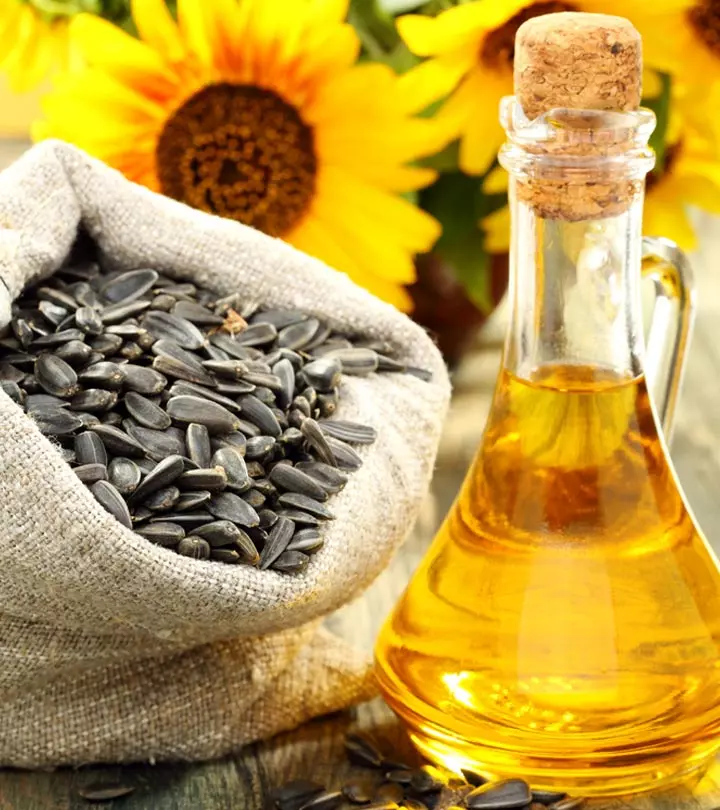






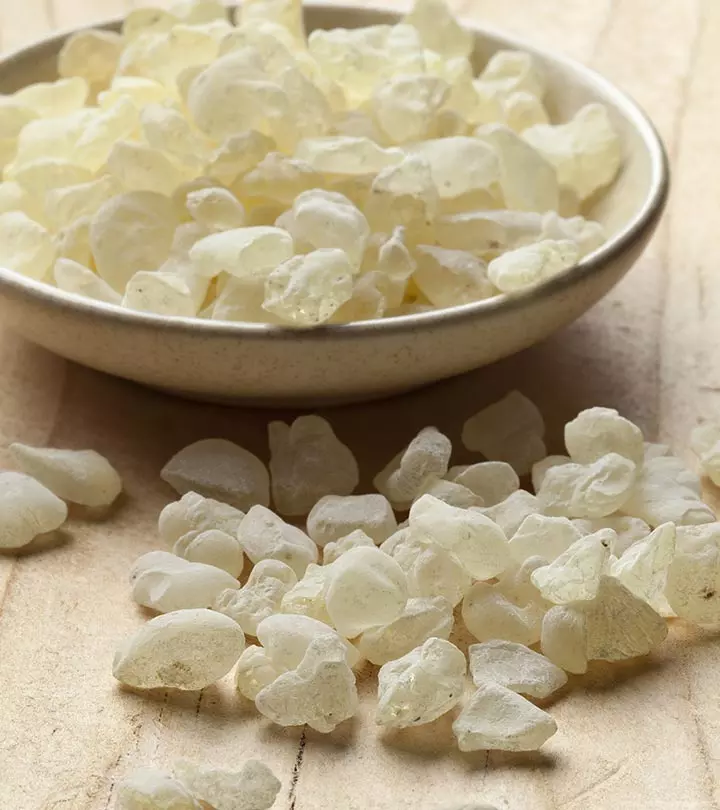


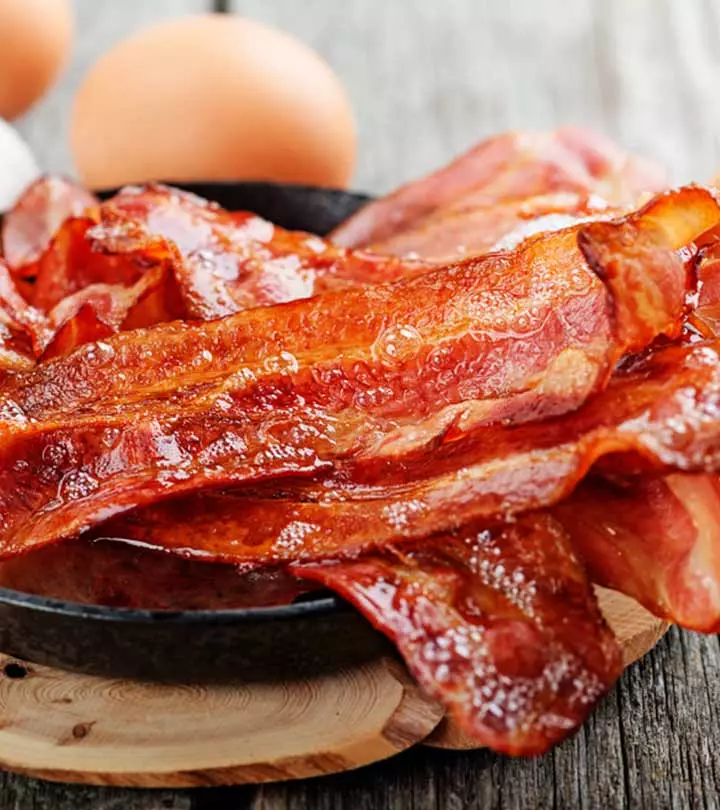


Community Experiences
Join the conversation and become a part of our empowering community! Share your stories, experiences, and insights to connect with other beauty, lifestyle, and health enthusiasts.